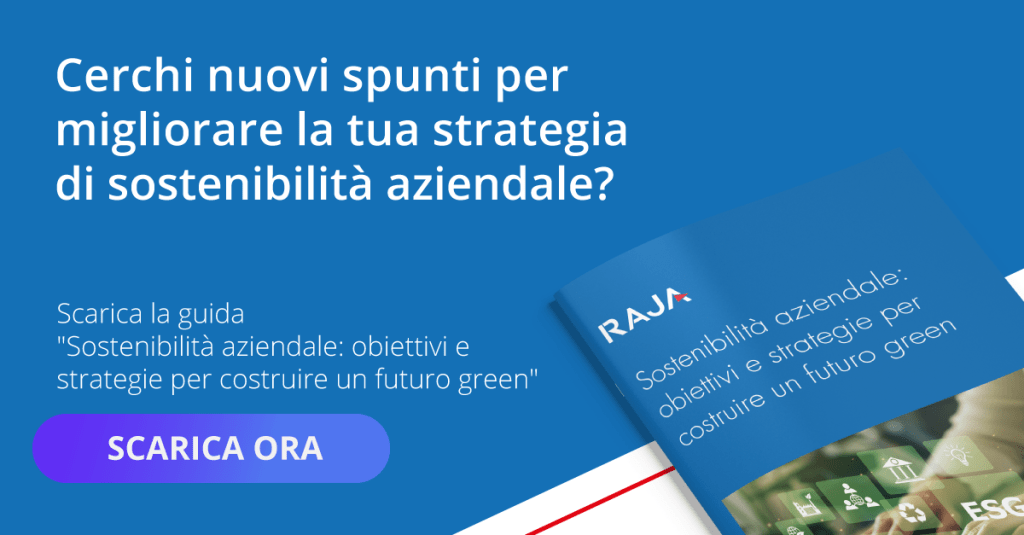In the stormy sea of global challenges, the sustainability emerges as a beacon for companies and governments. L’Italy and theEuropean Union have not stood idly by, implementing regulations pushing towards a greener and more responsible and responsible economy.
ESG regulation in Italy: The Legislative Decree 254/2016
The Legislative Decree 254/2016 represents a real turning point for sustainability in Italy. By introducing thereporting obligation non-financial reporting, companies are required to consider the impact of their activities in terms of environmental, social and governance issues. This means that companies must now provide information on policies adopted with regard to these issues, the performance and the related riskscontributing to greater awareness among stakeholders and promoting more responsible and transparent business ethics.
In practice, companies must now integrate in their annual reports a dedicated section clearly describing the policies adopted regarding sustainabilitythe actions taken and the results obtained. The obligation of transparency in this context requires companies to confront their ethical conduct and the consequences of their decisions on the environment and society.
Let us look at some examples of information that companies must disclose:
- how they manage water resources,
- what policies they adopt to reducing greenhouse gas emissions,
- how they address waste management and recycling,
- what is their commitment to protecting workers’ rights, gender equity and social inclusion.
On the governancenon-financial reporting aims to ensure that business practices are conducted with integrity and transparency, highlighting anti-corruption procedures and executive remuneration policies.
This emphasis on non-financial reporting also has the potential to stimulate companies to review and improve their internal practices to align with the standards required standards. The sustainability report thus becomes a tool for dialogue with stakeholders, including investors, customers and civil society, providing them with a clear picture of the company’s commitment to environmental, social and economic sustainability, enabling them to make informed decisions.
In summary, the Legislative Decree 254/2016 is not just a regulatory fulfilment, but represents a push towards a broader reflection broader reflection on the social role of business and the importance of ethical and responsible actingthat considers the long-term impact of corporate activities. With this decree, Italy positions itself as a proactive player in the international corporate sustainability scenario, promoting a business model that succeeds in combining profit and social responsibility.
Europe and sustainable transparency: new reporting obligations
The transparency has become an imperative in the EU for large companies to disclose detailed data on their sustainable operations. This aims to increase trust of consumers and investorsby making it clear which companies are really working towards a sustainable future.
The SMESfor their part, are encouraged to follow this example, albeit with a longer time horizon, highlighting the importance of a gradual but decisive transition towards sustainability for all companies.
The European Directive and the general requirements for companies
The imminent introduction of the new Corporate Sustainability Reporting Directive (CSRD) and the resulting General Requirements represent an important tool for ensuring that European companies align with EU environmental goals.
This new regulatory package will require companies to prepare a sustainability report to disclose in detail the use of resources and the impacts of their business activities, both directly and indirectly, through their value chain.
The European regulatory structure: a four-step plan
The European Union has outlined a regulatory framework with four levels to address and regulate corporate sustainability. This layered approach allows different aspects of sustainability to be addressed, from reporting to financetaxonomy to low-carbon metrics.
- The Corporate Sustainability Reporting Directive (CSRD) calls for greater clarity in corporate reporting.
- The Sustainable Financial Disclosure Regulation (SFDR) aims to prevent so-called ‘greenwashing’.
- The Taxonomy Regulation provides a clear classification of what constitutes a sustainable activity
- The Low-carbon Benchmark Regulation sets standards for financial indices that favour low-carbon investments.
The future of reporting: the CSRD Directive
With the arrival of 2024, companies will have to comply with the new Corporate Sustainability Reporting Directive (CSRD)a significant update that brings with it the goal of greater clarity and comparability of information on companies’ sustainable practices.
The social responsibility of the financial sector
A crucial sector in promoting corporate sustainability is the financial sector. Banks, investment funds and financial advisors are increasingly gearing their strategies towards sustainable financial products and services. This movement not only responds to growing demands for social responsibility but also contributes to the promotion of a greener economy through sustainable investments and the implementation of technical screening criteria to assess the environmental and social impact of economic activities.
The European Green Deal: a holistic view
The Sustainability Reporting Directive is part of the European Green Dealan ambitious plan which aims to makeEurope the first climate-neutral continent by 2050. This directive is one of the legislative instruments to close information gaps and accelerate the transition to a sustainable economy.
The road to sustainability is paved with challenges, but also with immense opportunities. Italian and European legislation is an example of how the legislation can drive changeby incentivising companies to be more aware of the impact of their actions and to pursue a more sustainable future.
Packaging sustainability
In the broader context of corporate sustainability, the packaging play a crucial role. The regulations encourage innovation towards more sustainable materials and environmentally friendly production processes, thus reducing the overall waste impact and promoting the circular economy.
Innovation and sustainability: The Circular Economy and Green Areas
In the context of the ESG regulationan important consideration is given to the circular economy and the promotion of green areas. European companies, with the support of delegated regulations and guidelines from the European Commission, are exploring new business models that maximise the efficient use of resources and minimise negative impacts on the environment. This approach helps to reduce environmental impacts while promoting essential economic activities in a sustainable manner.
Towards climate neutrality: the challenge of climate change
The environmental objectives of ESG regulations are closely linked to the fight against climate change. The European Parliament and the EU Commission are working to establish new rules and regulations as part of the European Green Dealto guide companies and the entire business sector towards climate neutrality. This includes encouraging listed SMEs and large banks to take concrete actions to reduce carbon emissions and implement sustainable practices.















